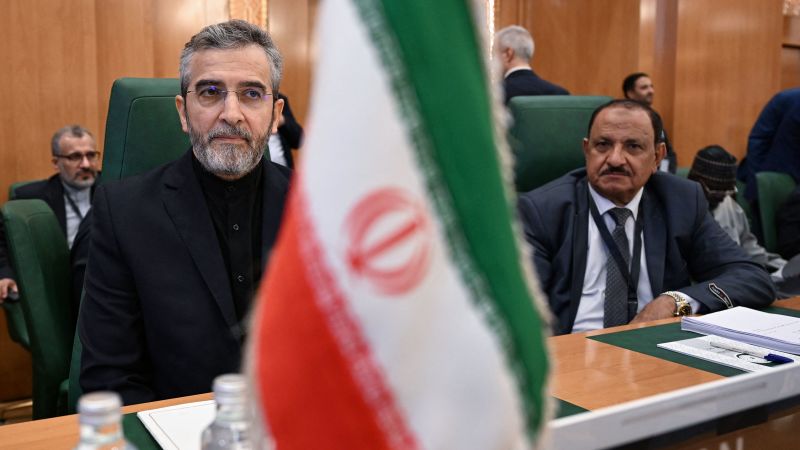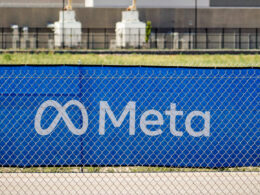Jeddah, Saudi Arabia
CNN
—
The Middle East, and indeed much of the world, is bracing for Iran to carry out a revenge attack on Israel over the assassination of Hamas’ political leader. But could Tehran instead be prepared to pull back in exchange for progress on Gaza peace talks? That was the hope among regional leaders gathered at an emergency summit in Jeddah.
It was Wednesday and the world was on edge. Flights across Iran and its neighbors were cancelled amid fears that missiles could fly any moment, triggering a much-feared escalation of Israel’s war in Gaza.
With his country on the brink of triggering a regional war, Iran’s Acting Foreign Minister Ali Bagheri whispered to an aid bending close to catch his words.
Cameroon’s foreign minister sat to Bagheri’s right, Yemen’s to his left, along with a room full of other foreign ministers from Muslim-majority countries, all there to help prevent the situation from spiraling into a wider conflict.
Since Hamas’s political chief Ismail Haniyeh was assassinated in Tehran last week, the Islamic Republic’s leaders have vowed vengeance against Israel, whom they claim was responsible. Israel hasn’t confirmed or denied responsibility.
The unassuming venue for such a last-ditch effort to quell Iran’s seething rage was the headquarters of the Organization of Islamic Cooperation’s (OIC), modest by Saudi Arabia’s rapidly modernizing and glitzy standards. It sits in a dusty, nondescript corner of the Red Sea city of Jeddah.
The play in the room, if it can be called that, was carefully articulated to CNN by Jordan’s foreign minister, Ayman Safadi, who stepped out of the high stakes talks to promote the initiative his vulnerable kingdom is championing: “The first step toward stopping the escalation is ending its root cause, which is the continued Israeli aggression on Gaza.”
The thrust, to convince Israeli Prime Minister Benjamin Netanyahu to soften his stance in ceasefire negotiations with Hamas, isn’t new. But the payoff this time may be much more attractive than previous attempts.
United States Secretary of State Antony Blinken says the US and its allies have communicated directly to both Israel and Iran that “no one should escalate this conflict,” adding that ceasefire negotiations have entered “a final stage” and could be jeopardized by further escalation elsewhere in the region.
Safadi was in Tehran over the weekend and met both Bagheri and Iran’s new President Masoud Pezeshkian, and appears to believe that Iran may be looking for an off ramp to escalation.
Iran needs diplomatic cover to back away from its hasty threats against Israel in the immediate aftermath of Haniyeh’s killing: a Gaza ceasefire that would allow Tehran to claim it cares more for the lives of Palestinians in the Palestinian enclave than it does for taking revenge would fit the bill. But the payoff needs to be big enough for Iran as its honor and deterrence are at stake.
France’s President Emanuel Macron is adding his diplomatic heft, declaring in a phone call with Pezeshkian Wednesday, retaliation against Israel “has to be abandoned”.
Pezeshkian’s response suggests he is listening. “If America and Western countries really want to prevent war and insecurity in the region, to prove this claim, they should immediately stop selling arms and supporting the Zionist regime and force this regime to stop the genocide and attacks on Gaza and accept a ceasefire,” he said.
Could Hezbollah act alone
Nearly ten months since Israel’s war in Gaza, triggered by Hamas brutal October 7 attack which saw around 1200 people in Israel killed and at least 250 others taken hostage, almost 40,000 Palestinians have been killed, according to Palestinian health officials – and there is still no end in sight to the conflict
The catch in the Gaza ceasefire escalation off-ramp play is that it is heavy on hope and short on substance.
For it to work, Netanyahu will have to buy in to it too.
Hamas just made this harder by replacing Haniyah with his tougher counterpart inside Gaza, Yahya Sinwar, an architect of the October 7 attacks, and anyway, right now they are in no mood for meaningful talks.
The change, if it’s going to come, according to the consensus at the OIC has to be from the outside, from the only person who remotely has the clout to temper Netanyahu – US President Joe Biden.

But almost a year into the conflict, Biden refuses a showdown with Israel’s most hardline, right-wing government in its history, that also adding to the frustrations in Jeddah.
Riyad Mansour, Palestine’s Permanent Observer at the UN, was in the room with Bagheri and the others.
“The region does not need escalation,” he said “What the region needs is a ceasefire. What the region needs to address legitimate rights. I have a feeling that Prime Minister Netanyahu wants to drag President Biden into a war with Iran”
What Bagheri did get in Jeddah was the kind of diplomatic support intended help get them off the ledge, with Mansour saying “With regard to what Iran wanted about, you know, the respecting its territorial integrity and its sovereignty, there was, you know, a strong support to this sentiment.”
As the acting Iranian foreign minister left for Tehran following the four-hour emergency meeting, focus shifted slightly back to Iran’s Lebanese proxy Hezbollah, which is also intent on retaliation for the assassination of its top military commander Fu’ad Shukr in Beirut hours before Haniyeh’s killing.
One US official and one western intelligence official told CNN that fears are higher now about Hezbollah taking action than Iran, raising the prospect that the Lebanon-based militia group may act without them.
For Netanyahu this may look like semantics intended to blunt Israel’s desire for an overwhelming response against either aggressor.
He views Iran and Hezbollah as different hands of the same theological head.
With the exception of direct IranianIsraeli exchange of fire in April, Hezbollah has always landed the punches on Israel Iran hesitates to take, and may this time throw a double blow, one for Shukr and one for Hamas’s Haniyeh.
Were that the case Israel’s retaliation against Hezbollah could just as quickly become the regional escalation dragging in Iran that everyone fears.
What is clear, the Jeddah meet and the back channel diplomacy buys diplomatic space and time to develop an off ramp that has a least a little traction for now.
Both Iran and the US, to a degree, are buying in to it.
Whether this fizzles out to another false horizon is with Bagheri and his president.









